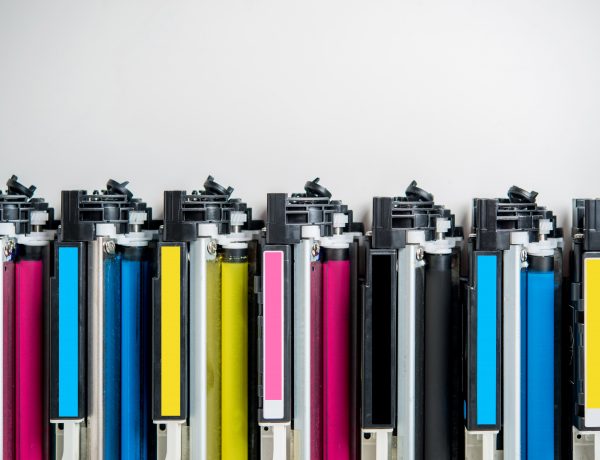In the appeal decision of Calidad Pty Ltd v Seiko Epson Corporation [2019] FCAFC 115 the Full Federal Court of Australia found that refurbished printer cartridges infringed an Australian patent. The decision involved consideration of whether modifications made in refurbishing the printer cartridges fell within the scope of an implied license, and whether the modifications related to repair or making a new product.
This decision should be considered both by patentees whose products can be refurbished and sellers or importers of refurbished patented products.
Background
Seiko Epson Corporation (“Seiko”) is the owner of Australian Patent No. 2009233643 (“the Patent”) directed to printer cartridges. Seiko sold printer cartridges designed only for use with Epson printers.
Ninestar Image (Malaysia) SDN BHD (“Ninestar”) collected and refurbished used Epson printer cartridges. Calidad Pty Ltd and associated companies (“Calidad”) imported and sold the refurbished cartridges in Australia. The modifications included steps of:[1]
- Inspection, emptying and cleaning.
- Creating a hole in a cartridge, injecting replacement ink through the hole and sealing the hole.
- Resetting data stored on a memory chip of a cartridge to record that the ink volume as “full”.
- Research and development processes that allowed understanding of operation of the original Epson cartridges.
Seiko took infringement proceedings against Calidad for several families of refurbished printer cartridges.
The Original Decision
In the infringement proceedings, the Federal Court outlined a three-step test that included consideration of the extent to which the modifications made in refurbishment affected the patented product insofar as it represented an embodiment of the claims.[2] Based on the nature of the modifications made, it was found that a portion of the families of printer cartridges infringed the Patent, whereas the remainder did not.[3]
Calidad appealed the decision and Seiko cross-appealed.
The Appeal
Each of Justices Greenwood, Jagot and Yates provided consideration, resulting in Calidad’s appeal being dismissed and Seiko’s cross-appeal allowed.[4]
The Full Federal Court noted that the appeal concerned “the right of a patentee to control or limit what may be done with a patented product after it has been sold”.[5] Implied licenses were considered in terms of National Phonograph[6], interpreted to indicate that the sale of a patented article by a patentee or its authorised licensee gives to the purchaser, in the absence of notice to the contrary, a licence under the patent to exercise in relation to the article all the normal rights of an owner.[7]
The Court also considered the right of repair and note the difference between repair, extending the life of a product, and making a product in terms of case law.[8] The Court noted cartridges refurbished by Ninestar no longer worked as, due to a consequence of their use, their ink had been depleted.[9] The cartridges were found not to be “broken” or defective or deficient. Rather than repair, the modifications were found to constitute re-purposing or “making”.[10]
Chief Justice Yates commented that “ownership of a patented article supplied in an unrestricted sale does not imply a general licence to exploit the invention simply because the article is an embodiment of it”[11] which can be read to mean that purchase of a product does not infer a right to manufacture the product.
The Court also noted that “were not supplied in a form in which they could be accurately described as re-usable or re-fillable cartridges or, indeed, cartridges that, objectively, were intended to be re-used or re-filled”.[12] The detailed description of the processes and research conducted by Ninestar to allow the cartridges to function again were found to indicate that the modifications were not carried out to repair the cartridges, but to re-purpose them.[13]
Based on this decision patentees should consider whether refurbished goods have been remanufactured (potentially infringing) or repaired (non-infringing). Patentees may also consider whether goods are sold as re-usable. Conversely, sellers or importers of refurbished goods should consider whether the goods could be found to be remanufactured and thereby potentially infringing.
This case raises questions in industries where refurbishment is common and will require review on a case by case basis.
[1] Seiko Epson Corporation v Calidad Pty Ltd [2017] FCA 1403, [228]-[237].
[2] Seiko Epson Corporation v Calidad Pty Ltd [2017] FCA 1403, [178].
[3] Seiko Epson Corporation v Calidad Pty Ltd [2017] FCA 1403, [294].
[4] Calidad Pty Ltd v Seiko Epson Corporation [2019] FCAFC 115, [87], [183], [295].
[5] Calidad Pty Ltd v Seiko Epson Corporation [2019] FCAFC 115, [184].
[6] National Phonograph Co of Australia Ltd v Menck [1908] HCA 96
[7] Calidad Pty Ltd v Seiko Epson Corporation [2019] FCAFC 115, [188].
[8] See, eg, Calidad Pty Ltd v Seiko Epson Corporation [2019] FCAFC 115, [161]-[162].
[9] Calidad Pty Ltd v Seiko Epson Corporation [2019] FCAFC 115, [280].
[10] Calidad Pty Ltd v Seiko Epson Corporation [2019] FCAFC 115, [84]-[85], [177], [294].
[11] Calidad Pty Ltd v Seiko Epson Corporation [2019] FCAFC 115, [289].
[12] Calidad Pty Ltd v Seiko Epson Corporation [2019] FCAFC 115, [281].
[13] Calidad Pty Ltd v Seiko Epson Corporation [2019] FCAFC 115, [281].

